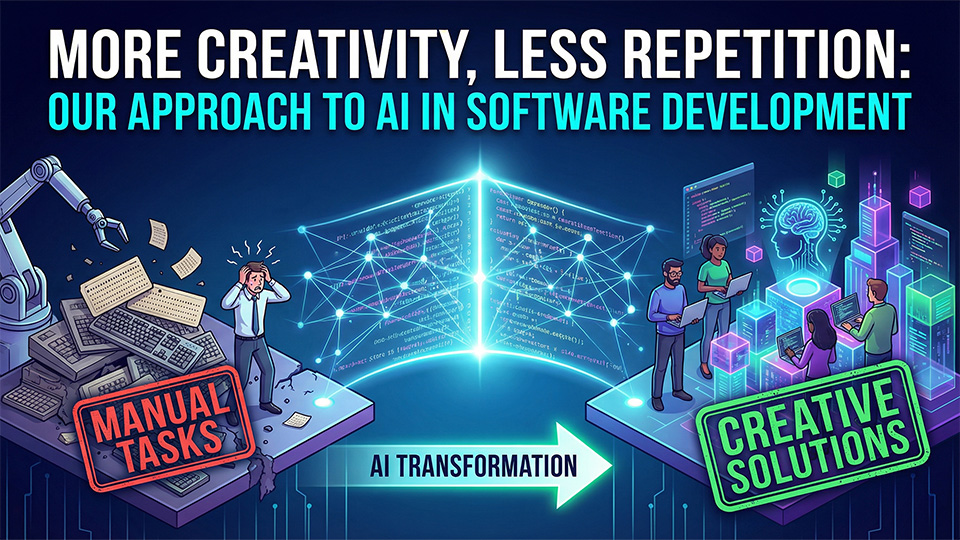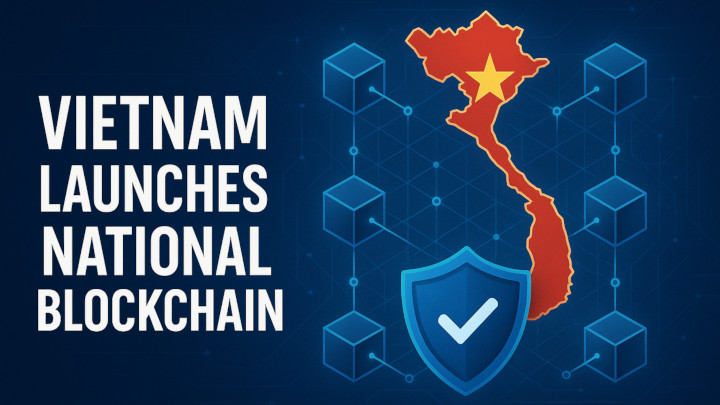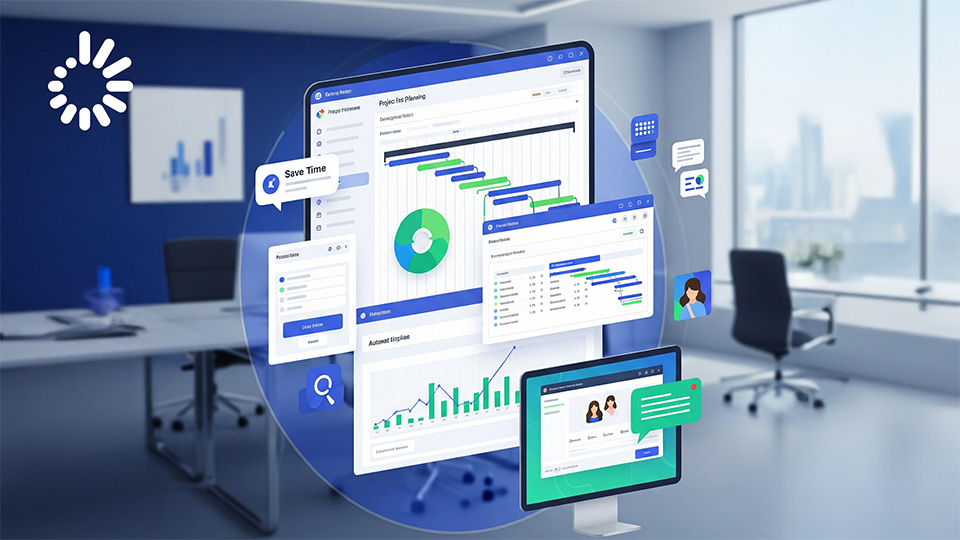October 16, 2023
How to Manage Remote Development Teams Effectively 2025
Remote development teams are becoming more common in the software industry, especially in the wake of the COVID-19 pandemic. However, managing a remote team poses some unique challenges that require careful planning and communication.
Dirox has been providing remote tech outsourcing for 20 years and is more than willing to share some tips and best practices on how to manage remote development teams effectively and ensure high-quality results.
Understanding the Challenges of Remote Team Management
The rise of remote work has revolutionized the way businesses operate, offering flexibility and global talent pools. However, managing remote teams presents unique challenges that require careful consideration and strategic approaches. From communication barriers to cultural differences and burnout risks, organizations must navigate a complex landscape to ensure team effectiveness and employee well-being.
1. Communication Barriers
Asynchronous Communication: While tools like Slack and Microsoft Teams facilitate real-time chat, asynchronous communication can lead to misunderstandings and delays.
Lack of Non-Verbal Cues: Remote interactions often rely mainly on written communication, eliminating nonverbal cues that can convey subtle nuances and emotions.
Language and Cultural Differences: When team members from diverse cultural backgrounds collaborate, language barriers and differing communication styles can hinder effective collaboration.
2. Varying Work Preferences
Individual Work Styles: Remote work allows employees to tailor their work environments to their preferences. However, managing a team with diverse work styles can be challenging, especially when coordinating tasks and deadlines.
Time Zone Differences: Teams spread across multiple time zones face difficulties in scheduling meetings and maintaining consistent communication.
3. Isolation and Burnout
Social Isolation: Remote work can lead to feelings of isolation and loneliness, as employees miss out on in-person interactions with colleagues. According to a survey by Statista in 2020, 35% of people sometimes feel lonely and isolated when working from home.
Blurred Work-Life Boundaries: The lack of physical separation between work and personal life can contribute to burnout, as employees struggle to maintain a healthy work-life balance. Buffer reports that 18% of remote workers have difficulties “unplugging” after a business day.
Building and Managing Remote Software Engineering Teams
Hiring the Right Remote Team Members
The foundation of a successful remote team lies in hiring the right individuals. Here are some key criteria to consider when selecting remote software engineers:
Technical Proficiency: Look for candidates with strong technical skills and experience in relevant programming languages, frameworks, and tools.some text
- Dirox Tip: Request their access to their past projects.
Communication Skills: Effective communication is crucial in a remote environment. Prioritize candidates who are excellent written and verbal communicators.some text
- Dirox Tip: Conduct a technical interview to assess their ability to explain complex technical concepts clearly and concisely.
Self-Discipline and Time Management: Remote work demands a high degree of self-discipline and time management skills.some text
- Dirox Tip: Inquire about their time management strategies and how they prioritize tasks.
Adaptability and Flexibility: The ability to adapt to changing circumstances and work independently is key to success in a remote setting.some text
- Dirox Tip: Present hypothetical scenarios that require adaptability and problem-solving skills.
Cultural Fit: While technical skills are important, cultural fit can significantly impact team dynamics. Look for candidates who align with your organization's values and work culture.some text
- Dirox Tip: Consider using a personality assessment tool to gain insights into their work style and preferences.
Onboarding Remote Engineers: A Smooth Transition
A well-structured onboarding process is essential to ensure remote engineers feel welcomed, supported, and productive from the start. Here are some key strategies to enhance the remote onboarding experience:
- Personalized Onboarding Plan: Create a customized onboarding plan for each new hire, outlining key tasks, deadlines, and expectations.
- Technology Setup: Provide clear instructions and support for setting up necessary hardware, software, and collaboration tools.
- Virtual Team Introductions: Facilitate virtual introductions to team members to help new hires build relationships and feel connected.
- Mentorship Program: Assign a mentor to guide new hires through the onboarding process, answer questions, and offer support.
- Regular Check-ins: Schedule regular check-ins to monitor progress, address any concerns, and provide feedback.
- Clear Expectations and Goals: Clearly communicate performance expectations and goals to ensure alignment and accountability.
Continuous Learning and Development
To maintain a high-performing remote software engineering team, ongoing training, mentorship, and professional development are crucial. Here are some strategies to foster a culture of continuous learning:
- Virtual Training Programs: Offer a variety of virtual training programs, including webinars, online courses, and workshops, to keep team members up-to-date with the latest technologies and industry trends.
- Peer Learning: Encourage peer learning through knowledge-sharing sessions, code reviews, and collaborative projects.
- Professional Development Opportunities: Provide opportunities for professional development, such as attending conferences, certifications, and industry events.
- Performance Reviews and Feedback: Conduct regular performance reviews to provide constructive feedback and identify areas for improvement.
By implementing these strategies, organizations can build and manage high-performing remote software engineering teams that drive innovation and achieve business goals.
Strategies for Effective Communication and Collaboration
To address these challenges and build high-performing remote teams, organizations can implement the following strategies:
Define clear goals and expectations
Setting up clear objectives and expectations for each project, job, and individual is one of the most crucial parts of managing a remote workforce. This aids in bringing the team's vision, scope, and deliverables into alignment and helps to prevent miscommunications and conflicts. Additionally, you should constantly monitor the state of the job and manage the deadlines, priorities, and dependencies of each assignment.
Challenges
- A lack of alignment and clarity regarding the project's aims and objectives.
- Difficulty in planning and estimating the job due to complexity or unpredictability.
- A lack of clarity or consistency in the responsibility and task assignments.
- Delays or errors in the completion or quality of the task brought on by inadequate coordination or communication.
How to overcome
- Include the team in the project initiation and planning phases and ask for their input and feedback.
- Divide the work into smaller, more manageable tasks and assign them to the team members who are best suited to complete them.
- Use a project management tool that allows you to create, assign, and track tasks, like Jira, Trello, or Asana.
- Consult with the team frequently to check in and make sure everyone is on the same page.
Choose the right tools and platforms
The correct tools and platforms that promote cooperation and communication are essential for successful remote team management. You should use a version control system that enables code sharing and review, such as Git or SVN. Use a platform for communication that allows for screen sharing, video conferencing, and instant messaging, like Slack, Zoom, or Microsoft Teams.

Challenges
- Compatibility concerns that make it difficult to access or share the project's code or other resources.
- Asynchronous communication or different time zones that cause a loss of context or information.
- A failure to understand one another due to a lack of non-verbal or verbal clues.
- Distraction brought on by numerous or pointless notifications or texts.
How to overcome
- Make sure the group has access to a dependable and secure internet connection and devices.
- Create guidelines for communication that are explicit and consistent, including when to use which technology or channel, how frequently to communicate, what format to use, etc.
- Whenever possible, use video conversations to build rapport and trust among team members. When demonstrating or explaining complicated ideas or problems, use screen sharing or live coding tools.
Fostering a Positive Team Culture and Engagement
While remote teams offer flexibility and global connectivity, building a strong team culture in a remote setting comes with unique challenges. Fostering rapport, trust, and engagement among team members is not just an operational necessity but a cornerstone of sustainable success.
Team-Building Activities and Virtual Social Interactions
Creating opportunities for team members to connect outside of work tasks can significantly enhance camaraderie. In remote settings, team-building activities adapted to virtual platforms can replicate the bonding that happens in physical offices.
Activities like weekly chats with non-work topics or online game dates can encourage employees to develop a strong bond and discover each other’s hobbies outside of work.
Creating an Inclusive Environment
Deloitte Australia research shows that inclusive teams outperform their peers by 80% in team-based assessments. An inclusive work culture ensures that all team members feel respected, valued, and empowered.
In remote teams, this involves celebrating cultural diversity, recognizing individual achievements, and fostering a sense of belonging. Make sure that your team is educated on diversity and cultural respect by organizing diversity training sessions and creating recognition platforms. For example, you can implement tools like Bonusly or Kudos to give public recognition to team members.
Mental Health Initiatives
Mental health is an integral component of a positive team culture. The WHO estimates that for every dollar spent on mental health initiatives, organizations see a $4 return in improved productivity.
Remote work can blur the boundaries between professional and personal life, leading to burnout if not managed effectively. Proactive mental health initiatives demonstrate that organizations care about their employees’ well-being.
Check-ins on work progress are clearly necessary, but don’t forget to check in on your employees’ mental wellness too!
Defining Clear Performance Metrics and Accountability
In a remote setting, where daily interactions are less visible, defining clear and relevant performance metrics is crucial. Rather than focusing on hours worked, the emphasis should shift to output, engagement, and goal attainment. Some best practices project managers should keep in mind are:
Set Realistic Goals Collaboratively: Involve team members in planning goals to ensure alignment and ownership. For instance, use frameworks like SMART goals (Specific, Measurable, Achievable, Relevant, Time-bound) to create clarity and motivation.
Focus on Output Over Process: Evaluate deliverables, quality of work, and meeting deadlines rather than micromanaging daily tasks. Tools like Asana or Trello can provide transparency without intrusive oversight.
Offer Professional Development: Provide access to virtual training sessions, mentorship programs, and career growth opportunities. This enhances skills and keeps employees engaged with their work.
Conflict Resolution and Feedback Mechanisms
Conflict and miscommunication are inevitable, even in remote settings. Addressing these challenges promptly and constructively can prevent disruptions and strengthen trust within the team. Additionally, Google’s report shows that teams with high psychological safety levels are 1.5 times more likely to be innovative.
So if you’re looking to build a strong team, here are some tips you should take into consideration:
Facilitate Regular Feedback Sessions: Establish structured one-on-one or team-wide feedback meetings to discuss concerns, progress, and areas for improvement.
Implement Mediation Strategies: Train team leaders in mediation techniques to handle conflicts impartially and ensure all voices are heard.
Foster Psychological Safety: Create an environment where team members feel safe to express concerns without fear of judgment. For example, anonymous feedback tools can encourage open communication.
Future Trends and Continuous Improvement in Remote Work
As we look to the future, the rise of hybrid work, advanced collaboration tools, and a focus on continuous learning are shaping the landscape. To thrive in this evolving environment, managers must remain adaptable, forward-thinking, and equipped to embrace these trends effectively.
Hybrid Work Models
The hybrid model, which blends in-office and remote work, is becoming the standard for organizations seeking flexibility and productivity. It caters to employees' desire for autonomy while maintaining opportunities for face-to-face interaction.
Challenges and Solutions
Consistency Across Locations: Managers must ensure that all employees, whether remote or on-site, have equal access to tools, information, and growth opportunities.
- Solution: Implement centralized platforms like Microsoft Teams or Slack to unify communication and task management.
Scheduling and Space Management: Hybrid work often creates logistical issues, such as overcrowded office spaces or underutilized resources.
- Solution: Use scheduling tools like Robin or Envoy to optimize office usage and coordinate in-office days.
Advanced Collaboration Technology
Technological advancements are redefining how remote and hybrid teams interact, making collaboration seamless and efficient. From AI-driven platforms to virtual reality meeting spaces, these tools enable more dynamic and inclusive interactions.
Emerging Tools
AI-Driven Project Management: Tools like Asana’s AI integration or ClickUp can automate repetitive tasks, prioritize workflows, and provide real-time analytics.
Virtual Reality (VR) and Augmented Reality (AR): Platforms like Spatial or Gather create immersive meeting environments, bridging the gap between physical and digital workspaces.
Cloud-Based Collaboration: Services like Google Workspace and Notion allow teams to work on documents and projects simultaneously, regardless of location.
Benefits
Improved decision-making through data-driven insights.
Enhanced creativity and brainstorming in virtual environments.
Greater inclusivity by allowing geographically dispersed teams to participate equally.
Continuous Learning: Building a Future-Ready Workforce
Adaptability and ongoing skill development are vital for remote and hybrid teams. Rapid changes in technology and work practices mean employees must stay current to remain competitive.
Strategies for Continuous Learning
Upskilling and Reskilling: Offer training programs on emerging technologies, leadership skills, and industry-specific advancements through platforms like Coursera or Udemy.
Mentorship Programs: Pair employees with mentors to provide guidance and encourage knowledge sharing.
Microlearning Opportunities: Deliver quick, focused learning modules that employees can complete between tasks.
The Manager’s Role
Managers should foster a culture of curiosity and growth by recognizing achievements, setting development goals, and providing resources for skill-building.

How Dirox can offer you the best remote IT team
At Dirox, we recognize the value of having a knowledgeable and committed IT team to support the expansion and success of your business.
We offer the tools and knowledge you need to grow your workforce, increase productivity, and meet your business goals with our IT Staff Augmentation services, which include IT Staff Outsourcing and Offshore IT Staff solutions.
1. Assessing needs & defining requirements
We thoroughly assess your specific IT roles and skills requirements, precisely defining the qualifications and experience needed for the augmentation.
2. Selecting the best profiles
Our company carefully handpicks the best-suited IT candidates from Vietnam and around the world, presenting them to you for consideration.
3. Onboarding & integration
Once the selection is made, we seamlessly onboard the augmented IT professionals, ensuring a smooth integration into your existing team and workflow.
4. Project management & support
We take charge of overseeing and managing the augmented staff's performance, maintaining regular communication, and providing the necessary support and resources throughout the project.
The delivery of high-caliber, personalized solutions on time and on budget is a passion shared by our carefully selected team of developers, project managers, and designers. Each team member has a strong technical background, top-notch training, and an in-depth knowledge of agile SCRUM methodologies.
Contact us today to learn more about how our remote team can empower your projects!






























.svg)













